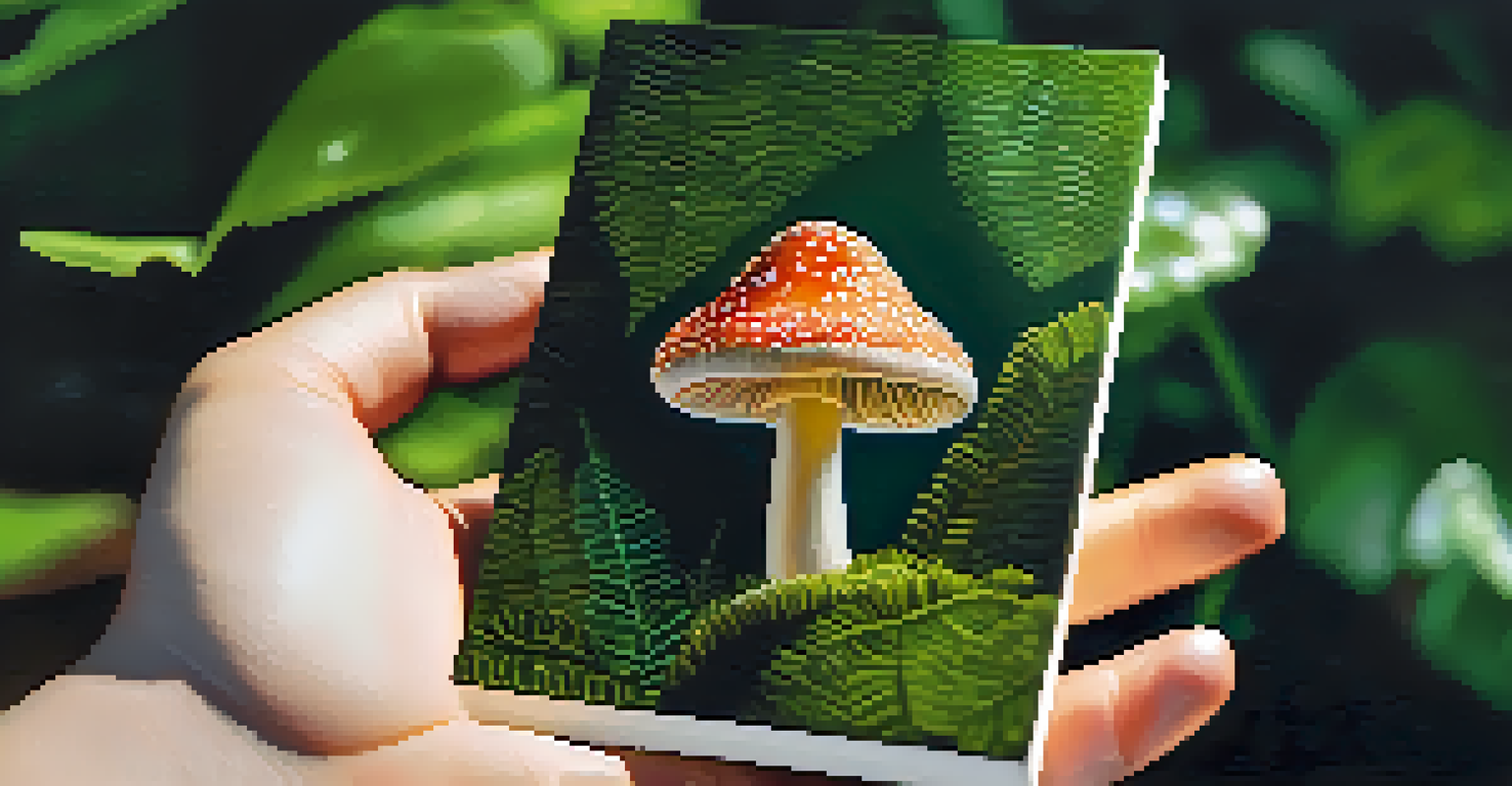The Influence of Psychedelics on End-of-Life Care Practices

Understanding Psychedelics and Their History
Psychedelics are substances that alter perception, mood, and cognitive processes. Historically, they have been used in various cultures for spiritual and therapeutic purposes. In recent years, there's been a resurgence of interest in these compounds, particularly in the context of mental health and end-of-life care.
Psychedelics can help patients confront their fears, find meaning in their experiences, and foster a sense of peace as they approach the end of life.
Many ancient civilizations, including Indigenous cultures, utilized psychedelics in rituals and healing practices. The modern scientific interest began in the mid-20th century, but regulatory hurdles slowed research. However, with growing evidence of their therapeutic benefits, studies on psychedelics are now gaining momentum.
Understanding the historical context of psychedelics helps us appreciate their potential in contemporary healthcare. As we delve into their influence on end-of-life care, we recognize the blend of ancient wisdom and modern science.
The Psychological Impact of Terminal Illness
Facing a terminal illness can lead to profound psychological distress, including anxiety, depression, and existential fear. Patients often grapple with the uncertainty of death, leading to a diminished quality of life. Understanding these emotional challenges is crucial for delivering compassionate end-of-life care.

Research indicates that many patients desire open conversations about their fears and wishes but often feel isolated in their struggles. This emotional burden can significantly affect not only the patients but also their families and caregivers. By addressing these psychological aspects, we can enhance the overall care experience.
Psychedelics Offer Therapeutic Benefits
Psychedelics like psilocybin and MDMA show promise in alleviating anxiety and improving end-of-life experiences for terminally ill patients.
In this context, psychedelics can play a transformative role. They may help patients confront their fears, find meaning in their experiences, and foster a sense of peace as they approach the end of life.
Psychedelics and Their Therapeutic Potential
Psychedelics like psilocybin and MDMA have shown promise in clinical studies for treating anxiety and depression, particularly in terminally ill patients. These substances may facilitate profound emotional breakthroughs, allowing individuals to process their fears and feelings about death. As a result, many patients report reduced anxiety and improved overall well-being after psychedelic therapy.
The use of psychedelics in therapy is not just about alleviating symptoms; it's about enhancing the quality of life during a critical time.
For instance, studies have indicated that psilocybin can help cancer patients cope with end-of-life anxiety, leading to lasting positive changes in their outlook. This therapeutic potential is not just about alleviating symptoms; it's about enhancing the quality of life during a critical time.
By integrating psychedelics into end-of-life care, we open the door to innovative treatment options that address the emotional and psychological needs of patients. This shift can significantly improve the experience of dying for both patients and their loved ones.
Clinical Trials and Emerging Research
Recent clinical trials have shed light on the efficacy of psychedelics in end-of-life care. Researchers are exploring how these substances can help patients confront their mortality and alleviate the existential dread that often accompanies terminal diagnoses. The promising outcomes of these studies are reshaping our understanding of end-of-life treatment.
For example, a study involving terminal cancer patients demonstrated that those who received psilocybin reported heightened feelings of acceptance and a decreased fear of death. These findings are prompting healthcare professionals to reconsider traditional approaches to palliative care.
Research is Reshaping End-of-Life Care
Emerging studies highlight the importance of integrating psychedelics into palliative care, potentially transforming how we support patients facing mortality.
As research continues to evolve, we can expect more nuanced insights into the role psychedelics may play in enhancing the dying process. This ongoing exploration is paving the way for integrating these substances into standard end-of-life practices.
Challenges and Ethical Considerations
While the potential benefits of using psychedelics in end-of-life care are exciting, there are significant challenges and ethical considerations to address. The legal status of many psychedelics remains a barrier, limiting their accessibility for patients who could benefit. Additionally, the stigma surrounding these substances often complicates discussions within healthcare settings.
Ethically, we must ensure that patients are fully informed about the risks and benefits of psychedelic therapy. Informed consent is crucial, as is the need for trained professionals to guide patients through these experiences safely. Establishing clear guidelines will be essential as we navigate this evolving landscape.
Ultimately, fostering open dialogue among healthcare providers, patients, and families about the potential of psychedelics is essential. By addressing these challenges head-on, we can begin to integrate these therapies responsibly into end-of-life care.
Personal Stories: Transformative Experiences
Personal anecdotes from patients who have undergone psychedelic therapy reveal the profound impact these experiences can have on their end-of-life journey. Many individuals share stories of newfound clarity, acceptance, and even joy during their final days. These narratives highlight the emotional healing that can arise from confronting mortality through psychedelics.
For instance, one patient described how a guided psilocybin session allowed them to reconnect with cherished memories and feelings of love. This experience not only alleviated their fear of death but also fostered a sense of peace that persisted long after the session. Such stories emphasize the transformative potential of these therapies.
Ethical Challenges Must be Addressed
Despite the benefits, legal and ethical considerations, including informed consent and stigma, pose significant challenges to utilizing psychedelics in healthcare.
These personal accounts serve as powerful reminders of the human capacity for resilience and healing, even in the face of death. They underscore the importance of considering psychedelics as viable options in end-of-life care, offering hope to those navigating this difficult journey.
The Future of Psychedelics in End-of-Life Care
As research continues to unfold, the future of psychedelics in end-of-life care looks promising. There is a growing recognition among healthcare professionals of the need for holistic approaches that address not only physical symptoms but also emotional and spiritual well-being. Psychedelics may play a key role in this shift toward more comprehensive care.
Advocacy for policy changes to allow for the therapeutic use of psychedelics is gaining momentum. As more studies demonstrate their efficacy, we may see broader acceptance and integration into standard palliative care practices. This evolution could revolutionize how we approach end-of-life care for future generations.

In conclusion, the influence of psychedelics on end-of-life care practices represents a convergence of science, compassion, and innovation. By embracing this potential, we can create a more supportive environment for patients as they navigate their final chapters.